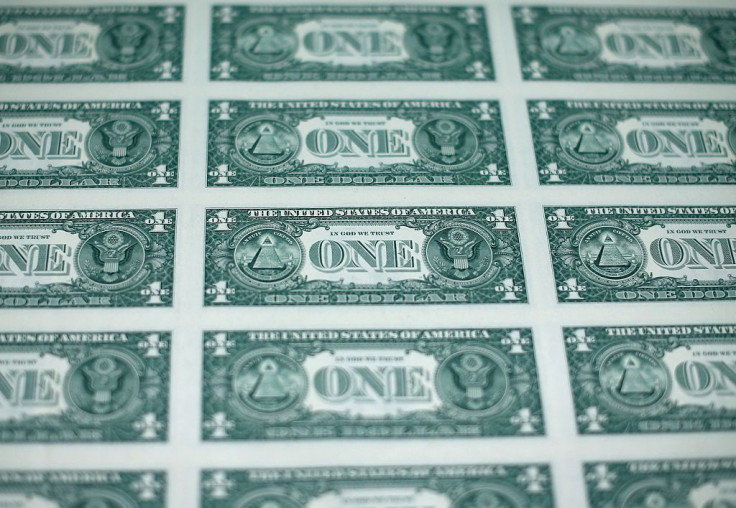How To Save Money Fast: 7 Quick And Easy Finance Tips For 2021
KEY POINTS
- Look for freebies
- Let your money work for you
- Avoid get-rich-quick scams
The economic damage from the pandemic left U.S. taxpayers with a lot of debt last year, so it's safe to say Americans are looking to save money in the New Year. With an uncertain future given the pandemic and the political climate, here are seven things anyone can do to save money in the new year.
No.7: Plan Ahead For Expenses
Nothing can ruin savings like unexpected costs. While some expenses are complete surprises, things like taxes are easier to predict.
Unemployment checks are taxable, meaning households could face additional burdens given the extra $600 from the CARES Act and the new stimulus measure passed late December. Financial services firm Kiplinger recommends households save up for tax season, particularly if they had supplemental income last year.
“Paying estimated taxes will help you avoid sticker shock — and a balance you can’t pay — when you file your 2020 tax return,” Kiplinger recommended.
No. 6: Credit Cards
Kiplinger also advises consumers to get a handle on their credit cards. If an issuer cut a credit limit as a precaution during the pandemic, ask to have it reversed. Make sure to take advantage of rewards like cashback. Also, look at those credit card fees; if you’re not using your perks, ask for a waiver for the annual fee.
Paying your credit card each month will help strengthen your credit score, giving you more purchasing power and loan availability in the future if you need it.

No. 5: Be Patient and Automate Your Savings
Kristen Eurtig, a financial planner and founder of Brooklyn Plans, told CNN’s Money it’s smart to set aside a small portion of your monthly income and then go from there as your comfort level adjusts.
“Saving is a long game, and it’s a situation where the tortoise wins every time,” she said.
Options include automated diversions to either a separate savings account, an individual retirement account such as a Roth IRA or a simplified employment pension (SEP).
No. 4: Cord-Cutting
You pay a one-time cost of no more than $100 or so for a Roku streaming device that includes access to some content such as news and other cable channels. A basic Netflix subscription runs about $110 per year. That compares with an estimated $420 per year for one of the lower-tier cable packages available from the likes of AT&T.
No. 3: Invest in Stocks Hammered by the Pandemic
Many of the companies that struggled during the pandemic – restaurant chains, airlines, retailers – will eventually recover and it may be a smart strategy to make early investments while stocks are cheap. That’s the advice from Morningstar, a financial services firm based in Chicago.
“While stocks in the restaurant sector have recovered, stocks for companies that supply restaurants and other public events have lagged in the rally,” said Morningstar’s Dave Sekera. “As patrons return to restaurants and taverns as well as other public venues such as sporting events, alcoholic beverage companies will regain much of their lost consumption.”
Stocks in that segment include Anheuser-Busch InBev (BUD), winemaker Constellation Brands (STZ) and Molson Coors Beverage (TAP). For restaurants, check out Restaurant Brands International (QSR), the parent company of the likes of Burger King and Tim Horton’s.

No. 2: Free Books and Movies
Your local library provides countless options at little to no charge. Most libraries have vast DVD catalogs, online audio content and music options available. Most of them provide in-house internet for free and many have classes and other community events available as well. And it’s similar to your local bookstore where you can spend hours roaming the shelves, but in this case, you can take a stack of books home with you free of charge. Some even offer e-books.
No. 1: Don’t Get Bamboozled
Apart from monitoring your accounts for fraudulent activity, beware of too-good-to-be-true offers to get rich in the new year.
In December, the Federal Trade Commission along with 19 federal agencies and local law enforcement announced “Operation Income Illusion,” a program meant to combat pyramid schemes and other investment ploys.
The FTC estimated that scammers took American consumers for some $610 million since 2016. Over the first nine months of 2020, the agency estimated the total lost to fraudulent investment schemes at $150 million.
“Scammers are preying on the unemployment and anxiety arising from the pandemic by making false promises of big income working from home,” Andrew Smith, the director of the FTC’s Bureau of Consumer Protection, said in a statement. “If someone promises you guaranteed income, but then tells you to pay them, tell the FTC right away so we can work to shut them down.”

© Copyright IBTimes 2024. All rights reserved.





















